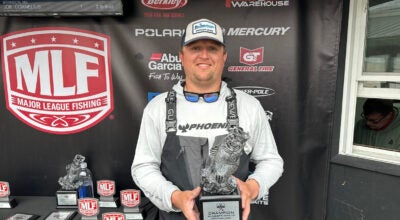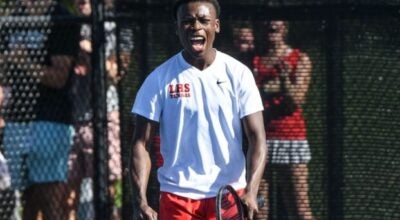Spark study ignites autism research at UMMC
Published 12:00 pm Monday, August 29, 2016
When Laura Beth Johnston’s son Fraiser was diagnosed with autism in December 2014, she said it was a “daunting diagnosis.”
“There is no ‘how-to manual’ for raising a child with autism,” Johnston said.
But with the support of therapists and specialists, Fraiser, 5, started kindergarten this year. Johnston said she and her family also found support through a group for families affected by autism spectrum disorders, or ASD.
“We met parents with the same fears and concerns,” Johnston said.
During one of those meetings, Johnston learned about a study at the University of Mississippi Medical Center’s Center for Advancement of Youth clinic, or CAY, that may shine light on ASD.
Dr. Robert Annett, professor of pediatrics, is leading the UMMC study site for the Simons Foundation Powering Autism Research for Knowledge, or SPARK, national genetic study of ASD.
“SPARK’s goal is to build a registry of genetic information from individuals with autism and their families,” Annett said. “The results will be important for identifying the causes of autism and informing treatment-related studies in the future.”
UMMC is among 21 institutions that will recruit a combined 50,000 participants and families. This will be the largest ASD study ever undertaken and is sponsored by the Simons Foundation Autism Research Initiative
According to the Centers for Disease Control and Prevention, one out of 68 children has ASD. However, Mississippi does not have a reliable estimate, said Annett, a pediatric neuropsychology specialist with experience with longitudinal cohort studies.
“There is a huge need in Mississippi to build an ASD cohort,” Annett said, to better understand and strengthen educational and health care resources for individuals with ASD. SPARK may help make that happen.
SPARK is a genome-wide association study, or GWAS, that collects whole DNA sequences from people who share a common trait, such as ASD. Researchers look for genetic markers, or gene variations that may contribute to ASD.
There are about 20 genetic marker “hotspots” connected to ASD, Annett said, but hundreds more could also be important. However, scientists do not understand how the different markers influence a person’s ASD symptoms, behaviors and traits.
“In people with autism spectrum disorders, there are differences in the rate and acquisition of learning, namely with social communication skills,” said Dr. Dustin Sarver, assistant professor of pediatrics and SPARK co-investigator. He studies learning and cognition in youth with attention deficit/hyperactivity disorder, which he says often co-occur with ASD.
The wide range of ASD characteristics and differences make it challenging to study potential causes or treatments, Annett said. By recruiting a large cohort, researchers can divide subjects into smaller, more similar groups to study.
Participating families pick up a DNA collection kit from the CAY clinic or receive it in the mail. Each family member spits or swabs their saliva into a tube and mails the sample to a laboratory where scientists test the extracted DNA for the genetic markers, a process called genotyping. They also answer medical history questions online. Families can receive their results after testing.
By collecting DNA from parents and siblings of children with ASD, researchers can study if and how children may inherit ASD.
“This project is about families, not just ASD individuals,” Annett said. “It is important for these families to have a seat at the table so that an individual’s needs can be expressed.”





